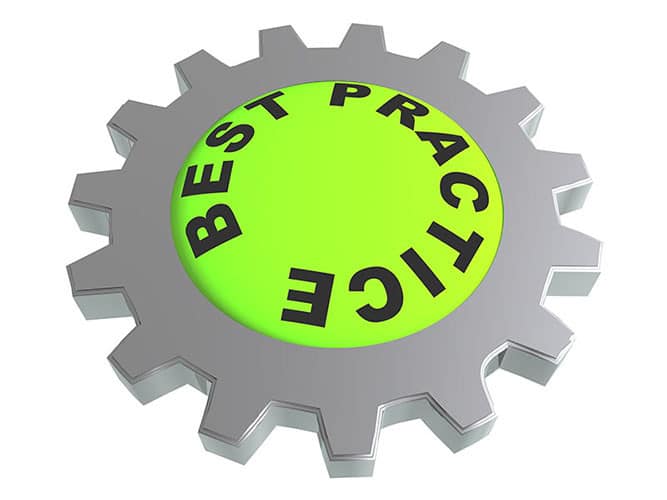The procurement process is a critical aspect that every delivery-based business should prioritize. For such a business to be up and running, they would need to acquire goods from various suppliers in a timely fashion.
Working with the best suppliers and the best price available is essential for business growth and effectiveness. These are the primary activities involved in procurement.
The Importance Of Procurement Management
In a business organization, there is always a need to minimize costs when procuring goods. No company wants to pay over the odds. An effective procurement system serves as the ultimate solution to help businesses to minimize costs and maximize their profits.
Firstly, identifying quality suppliers to source for products can be a time-consuming process. Also, it is only possible to get the best prices from these suppliers if you maintain a good supplier relationship with them.
Procurement management is not only crucial for sourcing and supplier relations. It also ensures that risks are minimized. An effective procurement process with robust contract management will enable businesses to properly handle contract risks, operational risks, financial risks, and more. The end result is a better supply chain and increased profits.
Another importance of an effective procurement process to your business is that it helps you understand internal happenings. You have to identify the products that the various sectors of your business need before sourcing. As a result, you get informed on the entire procurement cycle.
Likewise, procurement management involves various stages, which must be carried out with efficiency. Considering how often businesses are affected by everyday economic and political happenings, it would be disastrous for companies that do not adequately manage their procurement activities.
However, a digital procurement system can facilitate better procurement. Less work will be done, more time saved, while products will be sourced faster without any detriment on their quality or price. Furthermore, the process will be more accurate and consistent as human error will be eliminated.
How to Ensure an Effective Procurement Process
To ensure that your procurement department functions effectively, a well-designed procurement management process is needed. Luckily, the procedures to keep this organized and easily repeatable are simple.
Identify the required products
Efforts should be made to identify the required products in your business organization. You stand a better chance of paying less if the products needed are amplified. Therefore, procurement professionals should ensure that feedback is received from all business units. This also helps prevent last-minute order editing.
However, not every requirement thrown should be directly included in new orders. Validation should be carried out to ensure that the business needs the products. Goods that are not of utmost importance should be cut off to save costs.
Supplier evaluation and negotiations
Thorough supplier evaluation is essential to categorize the best suppliers available. It involves going through the suppliers’ list and checking your primary factors, such as quality and pricing. You should also consider secondary factors such as supplier reputation, product warranty, customer service, etc.
If your business has registered suppliers, this process will be a lot easier. However, you can still open applications for prospective suppliers to widen your choice. You can pick up multiple ideal suppliers before negotiations. The order should then be given to the supplier that offers the best deal.
Making payment and auditing
To ensure that the supplier(s) deliver accurately, you have to play your part. This involves making quota or prompt payment as agreed (either before or after delivery) once your supplier releases the purchase invoice.
Auditing the delivered products is the next procurement process after making payment. This is to ensure that suppliers deliver quality products. If there is any fallback, negotiations should be carried out for a possible fix. This could be full or partial refunds, replacement, etc.
Effective Procurement Planning
While creating an effective procurement process, experts advise starting with procurement planning. The first step of any procurement process is procurement planning, which starts by identifying which products are required and the budget of each department. Procurement planning acts as a guiding pillar for procurement teams, keeping them on track to avoid overspending and meet deadlines on time. If done efficiently, procurement planning can lead to an effective procurement process. Below we discuss the five important benefits of procurement planning to help you understand how important planning is and the advantages it provides to the procurement teams.
Benefits of Procurement Planning
1. Cost Reduction
One of the most important benefits of procurement planning is the cost reduction that is achieved by sourcing products strategically, and deciding which suppliers to get products from as part of the sourcing plan. By using the planning time to negotiate with suppliers, and having the luxury of not working within tight deadlines, means it is much easier to negotiate and potentially reduce the costs.
2. Transparency
As the procurement plan is created for all members of the procurement team to see and be aware of, it creates complete transparency and visibility within the procurement process. Should anything go wrong, it is an easy base point for everyone to get back to the drawing table and develop a solution. Furthermore, should anything go wrong, with a perfect plan in place, nothing should be affected since there’s a clear pathway for the procurement of all items. Problems in the procurement process do not have ripple effects across the board.
3. Extra Resourcing
Effective procurement planning means that you are considering everything each department needs to function smoothly. Some particular periods or projects may require extra resources. By planning, you can determine what particular periods need extra resources. For example, if you work in a large service industry as a bank or insurance company, and you know you will serve a large number of clients during peak seasons, you’ll know that you will need extra automation power to handle inquiries, process payments, and provide streamlined services. Planning helps plan for periods or projects that may warrant extra resources or potentially affect crucial business undertakings.
4. Performance Planning
Although planning is the initial step of the procurement process, one of the benefits of planning is that you can use it to measure each step of the way, as a tool of performance analysis. By using procurement planning as a tool to track performance, you can easily pinpoint any causes for not meeting specific targets. If you are the head of the department or in a position of management, procurement planning is an effective tool during appraisals, or for giving you constructive feedback that you feel may be necessary.
One more thing: always make sure that any changes to your plans are logged accurately, with a note explaining the areas to amend, and with the correct dates to match actions. In addition, 100% accuracy is needed to track performance data so that you can refer to this data.
5. Future Strategy Development
Not only is strategic procurement planning important for effective performance measurement, but it is also really useful for developing an effective procurement model that can be used in the future. Having measured performance, further analysis can be done to determine which methods are effective and which need improvement, based on real-time data.
Bottom Line – Automate With ProcurePort
The entire procurement cycle is associated with several risks in aspects such as sourcing, contract management, supplier management, and spend management.
Adequate measures can ensure that the effectiveness of procurement. A considerable part of your delivery-based business’s success depends entirely on how well the procurement process is managed.
With the ProcurePort Contract Management platform, you can automate your entire procurement cycle, thereby eliminating the hassles associated with the manual process.










